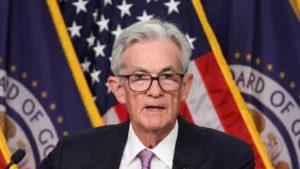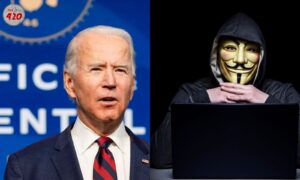
In a significant development for U.S.-China relations, the U.S. recently completed a prisoner swap with China to secure the release of American citizen David Lin, who had been detained in China for several years. The details of the exchange remained undisclosed until this week, emphasizing the complexity and sensitivity of such diplomatic negotiations between the two nations. This move marks another chapter in the complex relationship between Washington and Beijing, as each side navigates its geopolitical interests while addressing the status of detained nationals.
Background of the David Lin Detention Case
David Lin, an American citizen of Chinese descent, had been held in China on charges related to his business activities, which were reportedly deemed illegal by Chinese authorities. His detention initially attracted limited attention in the media, likely due to the sensitive nature of U.S.-China relations and the reluctance of officials to publicize such cases. However, Lin’s family and supporters actively campaigned for his release, citing concerns over his health and the legal circumstances of his detention.
The timing of Lin’s release raises questions about broader strategies in U.S.-China diplomacy, especially considering the strained relations in recent years. The U.S. has been vocal about American citizens detained in China, viewing some cases as politically motivated. The prisoner swap not only highlights Washington’s commitment to its citizens abroad but also reflects the lengths to which it will go to negotiate with Beijing.
How the U.S. Prisoner Swap with China Was Negotiated
Negotiations surrounding prisoner exchanges are often conducted under conditions of strict confidentiality. In the case of the U.S. prisoner swap with China, it’s likely that multiple government departments, including the Department of State, the White House, and the U.S. intelligence community, were involved in coordinating the terms of the agreement.
While details of the negotiation process remain classified, such exchanges typically involve months of talks and a careful balancing of interests on both sides. The U.S. sought Lin’s release as a priority, while China pushed for the return of a Chinese detainee held in American custody. These negotiations underscore the delicate balance the U.S. must strike in addressing individual cases without compromising its broader national security and foreign policy objectives.
Challenges in U.S.-China Diplomatic Relations
The recent U.S. prisoner swap with China brings to light ongoing challenges in U.S.-China relations, where geopolitical, economic, and security concerns frequently intersect. Diplomatic relations have been tense, with disputes over trade, Taiwan, cybersecurity, and military activities in the South China Sea straining dialogue. High-profile cases involving detained citizens only add another layer of complexity to these interactions.
For instance, the U.S. has recently imposed restrictions on Chinese tech firms due to security concerns, while China has taken reciprocal measures affecting U.S. companies. Against this backdrop, the David Lin case serves as a reminder of the human stakes involved in international diplomacy, where personal freedoms are often entangled with broader political agendas.
Why Prisoner Swaps Remain a Strategic Tool
The U.S. government has a long history of negotiating prisoner exchanges with foreign powers, using this approach as a strategic tool to protect its citizens while balancing foreign policy goals. However, such swaps are not without criticism. While supporters argue that securing the freedom of Americans detained abroad is paramount, detractors worry that these exchanges might encourage other governments to detain U.S. citizens as bargaining chips.
In the U.S. prisoner swap with China, the release of David Lin sends a strong message to American citizens and allies that the U.S. government prioritizes the safety and security of its people. At the same time, it signals to other nations that Washington is willing to negotiate under certain circumstances, though it remains selective about the timing and nature of such exchanges.
Implications for Future U.S.-China Relations
The U.S. prisoner swap with China could have implications for future diplomatic interactions between the two countries. Some analysts suggest that while this exchange might ease tensions temporarily, it is unlikely to resolve larger issues at play in the U.S.-China relationship. In fact, some observers argue that the release of David Lin could prompt similar requests from Beijing, which may look to leverage detained Americans or residents to further its interests.
Moreover, with the upcoming U.S. presidential elections and shifting political landscapes, the dynamics of U.S.-China diplomacy could experience further shifts. For now, the U.S. government may use the positive outcome of the Lin case to underscore its commitment to upholding the rights of its citizens abroad, despite the complexities involved in such diplomatic maneuvers.
Responses and Reactions to the U.S. Prisoner Swap with China
Public reaction to the U.S. prisoner swap with China has been mixed. While Lin’s family and supporters have expressed relief and gratitude for his return, others have questioned whether the exchange sets a risky precedent. Some political commentators argue that high-profile prisoner swaps should be handled with caution to prevent other countries from detaining Americans as leverage in diplomatic negotiations.
On social media, responses have ranged from celebratory messages about Lin’s freedom to debates about the impact of the exchange on U.S.-China relations. Members of Congress, particularly those critical of China’s human rights record, have called for increased transparency in future negotiations involving detained U.S. citizens.
Conclusion
The U.S. prisoner swap with China that secured the release of David Lin exemplifies the complex and often confidential nature of diplomatic negotiations between global superpowers. As geopolitical tensions continue to mount, this exchange highlights both the strategic use of prisoner swaps and the challenges that come with balancing individual cases against broader national interests.
Moving forward, the outcome of this exchange could influence future U.S.-China diplomatic relations, especially if other detained citizens come to the forefront. While the successful release of David Lin is a diplomatic win for Washington, it remains to be seen how both governments will address similar issues in the future, potentially affecting the lives of detained citizens and the nature of U.S.-China relations.
image credit – TREVOR HUNNICUTT/POOL/AFP/Getty


